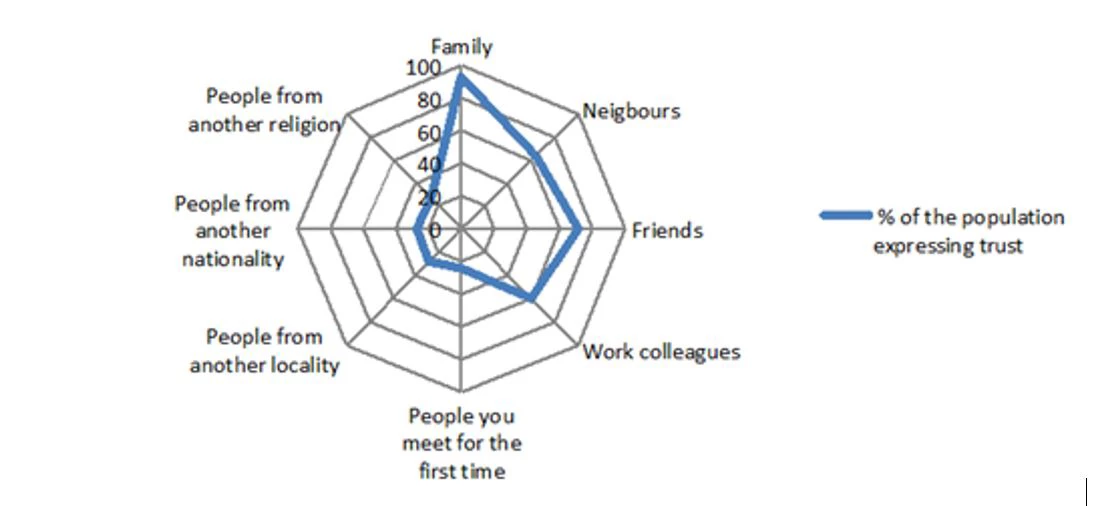 Trust image. Copyright Canva.
Trust image. Copyright Canva.
Many have written about the importance of trust for effective governance, infrastructure, taxes (twice), land rights, and – of course – the COVID-19 pandemic.
Trust has been increasingly recognized as fundamental for development. Research has shown a positive association between institutional trust and a range of development indicators, including economic growth, social cohesion and well-being, as well as the ability of a political system to sustain policy reforms.
In Morocco, where we have done some work on this topic, it is estimated that the decline in trust constrained the country’s growth by $2.21 billion between 2005 and 2014 (based on an initial nominal GDP of $59.52 billion).
What exactly do we mean by trust? The definition we use states that trust is “a person’s belief that another person or institution will act consistently with their expectations of positive behavior.”
The literature usually distinguishes between different types of trust: political, institutional, and social. Political trust refers to citizens’ trust in various dimensions of a country’s political system and its leaders. A distinction can be made between trust in political leadership and trust in institutions (for example, justice, police, hospitals, public officials, etc.). In our line of work, we primarily focus on trust in institutions. Finally, social trust, and the notion of the radius of trust, represents trust between individuals within society across a range of social ties.
Figure 1 The Radius of Social Trust in Morocco
Data source: World Bank survey on trust (2021)
Better picturing trust, it is time to touch upon the three ways of measuring it:
(i) Surveys in which respondents report their subjective trust for different entities. For example, the radius of social trust pictured above can be measured by asking respondents to assess their degree of confidence in different categories of individuals, starting from those close (e.g., family) and extending to those more distant (e.g., strangers).
(ii) Experiments where trust is inferred from the participants' behaviors (see here).
(iii) Observationally using variables and proxies associated with trust (see here).
We opted for the survey methodology for our work in Morocco because we wanted to hear directly from citizens. Most survey data (such as Afrobarometer or Gallup World Poll) came from a small sample (around 1,000-2,000 respondents per country), but we opted for a large sample size and interviewed about 6,000 respondents. We used a quota sampling method (age, gender, socio-professional category) following regional stratification. This means that each region, age, gender, and income group contained a relatively high number of respondents and that we could get statistics at a sub-national level. The survey was complemented with data from the Afrobarometer. Survey data are available here.
All inferences on trust based on surveys face some empirical caveats. First, when analyzing survey data, it is difficult to determine whether the coefficients measure what they are supposed to measure or whether trust is correlated with other — possibly omitted — determinants of legitimacy, compliance, etc. Second, surveys do not measure actual behavior but intentions and are therefore highly subjective. Differences in the wording of trust questions need to be interpreted carefully, as they might influence how respondents answer. There is a difference, for example, between a question related to trust about an institution in general (e.g., Justice) and a question related to trust based on recent experience as a service user (e.g., judiciary services).
Results confirmed some common hypotheses but also provided exciting new insights. Stay tuned to learn more about our findings and what we propose to do with it!
Editor's note: This blog is the first in a series of three in which we introduce the concept of trust and how to measure it, present interesting facts from Morocco, and address the critical question of how to build trust. The findings are taken from a recently published report and the data is publicly available.





Join the Conversation